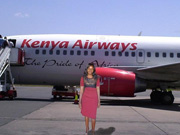

Addressing a conference on religions that concluded on Saturday, Xi said religious affairs carry "special importance" in the work of the CPC and the central government, and that the CPC's religious policies and theories had been proven right through past practices.
He promised to fully implement the Party's policy of religious freedom, manage religious affairs in line with laws, retain the principle of religious independence and self-administration, and help religions adapt to the socialist society.
Authorities should work to unite religious and non-religious people, and guide those religious to love their country, protect the unification of their motherland and serve the overall interests of the Chinese nation.
Religious groups, meanwhile, must adhere to the leadership of the CPC, and support the socialist system and socialism with Chinese characteristics, Xi said.
They should "merge religious doctrines with Chinese culture, abide by Chinese laws and regulations, and devote themselves to China's reform and opening up drive and socialist modernization in order to contribute to the realization of the Chinese dream of national rejuvenation."
The Chinese president said one key mission in helping religions adapt to the socialist society is localization.
"We should guide and educate the religious circle and their followers with the socialist core values, and guide the religious people with ideas of unity, progress, peace and tolerance," Xi said.
Religious groups, he continued, should "dig deep into doctrines and canons that are in line with social harmony and progress, and favorable for the building of a healthy and civilized society, and interpret religious doctrines in a way that is conducive to modern China's progress and in line with our excellent traditional culture."
Politics and religions must be separated, Xi stressed. "In no way should religions interfere with government administration, judiciary and education," he said.
Meanwhile, the government's regulation of religious affairs must be in line with laws and the legitimate rights of religious people must be protected.
Authorities must offer necessary support to the work of religious groups, and build a leadership that is politically trustworthy, democratic in conduct and efficient in their daily work.
"We must resolutely guard against overseas infiltrations via religious means and prevent ideological infringement by extremists," Xi said, adding that authorities should also focus on religious issues on the Internet and disseminate the Party's religious policies and theories online.
The Chinese president urged authorities to put religious work high on their work agenda, enhance the Party's research into religious issues and step up the guidance, planning, direction and supervision on religious work.
In particular, CPC members must act as "unyielding Marxist atheists, consolidate their faith, and bear in mind the Party's tenets."
They must not seek their own values and beliefs from religions, Xi said, adding that efforts should also be made to help teenagers form a scientific outlook of the world, and guide them to believe in science, study science and promote science.
Chinese Premier Li Keqiang presided over the two-day meeting, which was also attended by other top leaders including Zhang Dejiang, Yu Zhengsheng, Liu Yunshan, and Wang Qishan.
Li, for his part, urged government organs to study Xi's speech and carry out religions-related work in a more law-based manner.
Efforts should be made to direct the religious circle and their followers to enhance social harmony and work harder towards the realization of the Chinese dream.
Top political advisor Yu Zhengsheng urged authorities to keep in mind the social effects of religions in China. "The positive role of religions should be maximized, and their negative impacts minimized," Yu said.
Highlighting the promotion of rule of law in religious work, Yu also said all sorts of disputes and problems in the religious domain should be addressed correctly and in accordance with laws.
 |
Day|Week

 Female official wearing traditional Han costume to promote local tourism
Female official wearing traditional Han costume to promote local tourism Over 12,000 Runners Seek Medical Care in S China’s Marathon
Over 12,000 Runners Seek Medical Care in S China’s Marathon Six Luxury Sports Cars Totaled after Fail Attempts to Cross China’s Most Perilous Highway Linking SW China’s Sichuan and Tibet
Six Luxury Sports Cars Totaled after Fail Attempts to Cross China’s Most Perilous Highway Linking SW China’s Sichuan and Tibet Incredible Transformation: “Witch Child”Whose Parents Left Him for Dead in Nigerian Makes Speedy Recovery
Incredible Transformation: “Witch Child”Whose Parents Left Him for Dead in Nigerian Makes Speedy Recovery Kenyan woman's crappy photoshopped pictures make her a web celebrity
Kenyan woman's crappy photoshopped pictures make her a web celebrity Magnificent view of E. China's Anhui province
Magnificent view of E. China's Anhui province Global landmarks captured in striking shots
Global landmarks captured in striking shots Thailand Elephants Disguised as Pandas Sparks Debates
Thailand Elephants Disguised as Pandas Sparks Debates College girl dresses as mermaid to mark World Water Day
College girl dresses as mermaid to mark World Water Day J-15 fighters in drill on Chinese aircraft carrier
J-15 fighters in drill on Chinese aircraft carrier